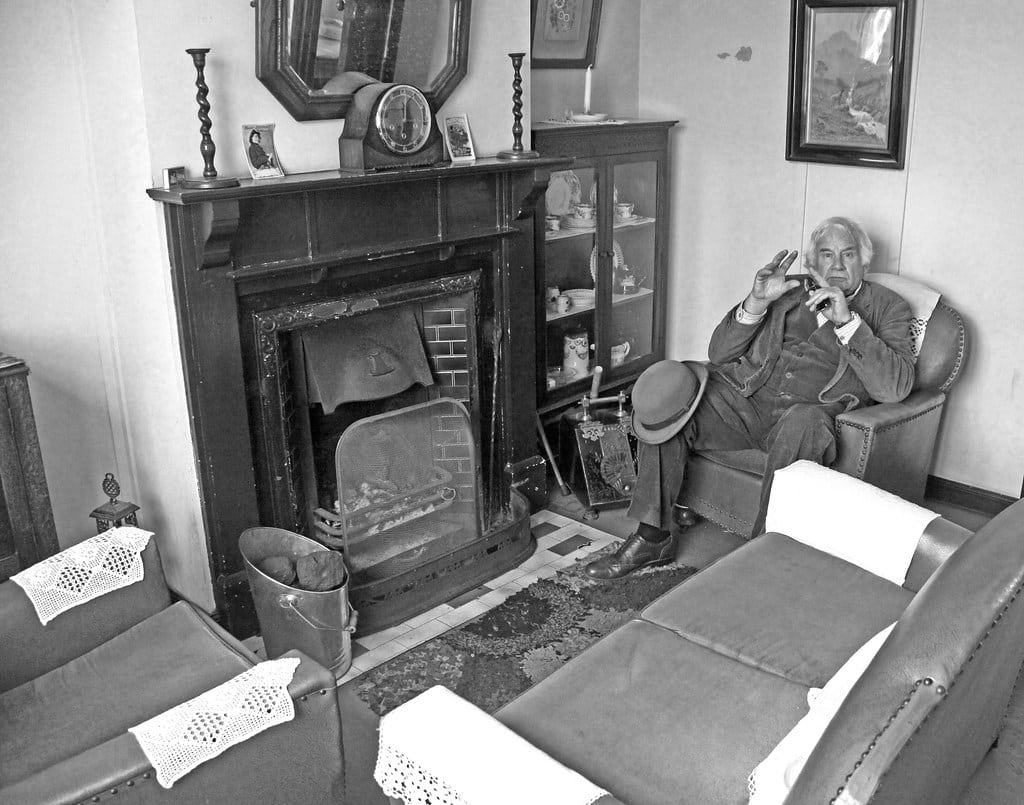
There are many things which I could not understand as a child which subsequently became clear with the onset of adulthood. Then there are also a few things which I understood as a child, but which baffled me after I grew up. The ‘parlour paradox’ is one such mystery that I ponder upon until this day.
I was born into a fairly large, fairly poor family – not an unusual situation for a child of the 1950s. We lived in a small house, where one more bedroom would have made such an incredible difference in space, comfort and domestic peace for our flourishing family. Of course we could, and did, live without that extra bedroom – but the ceist remains as to why was the one best room in the house not used except for social dialogue a dozen times during the year?
Why could this room not have been turned into an additional bedroom? The answer is that this strange situation had all to do with pride, status, snobbery and one-upmanship. You see, we were a family with a parlour – the most wasted space in our house!
When you came into our house, you found yourself in a little porch. The door to the right led into the kitchen. It was here that all of life was played out. Everything happened in the kitchen, from family gatherings, music, the wireless, card-plays – and of course cooking and dining.
Now, instead of turning right from the porch into the kitchen; had you tried the fancier door on your left, you would find this door locked. This was the parlour – and unless you were an important visitor, and my mother knew you were coming, that room would be out of bounds to you as well as us children.
The furniture in the parlour consisted of a sofa, sideboard, china-cabinet, mahogany table, four cushioned chairs and a totally unrelated assembly of various ornaments – mostly old stuff. A grandfather clock hung over the mantelpiece above the ornate black grate, and various grim-looking photographs adorned the papered walls.
Possibly because it was closed off from our everyday life, our parlour boasted its own unique smell that I never experienced anywhere else. I cannot place it exactly, and I can only guess that it was a combination of moth-balls, mustiness, furniture polish – and maybe even mice.
If an important visitor, such as a priest, or a long-lost American exile claiming to be a distant cousin, arrived unexpectedly, Mammy made them welcome in the porch and then left them standing while she went to a cracked mug on a shelf on the kitchen dresser. From the mug she extracted the key to the parlour door and returned to impress the visitor.
After a short while she would retreat to the kitchen and furnish tea for the guest, which was served on a tray. While the tea was ‘drawing’ we would be ordered to wash our face and hands – “and don’t let me see a speck of dirt on one of you!” The washing of the faces generally paid off, for as soon as we were brought forward for inspection, a man’s hand would delve into his trousers pocket or a woman would root a purse from a large handbag.
Coins would be placed in a child’s freshly scrubbed hand … despite Mammy’s exaggerated protests!
The one time of the year when it was ‘open house’ in the parlour was Christmas Day. Red-berried holly would be lavishly piled on the mantle-piece, stuck behind every picture and protruding from every nook and crevice. Daddy would attempt to light a fire in the grate; an action which often failed due to the revenge of the jackdaws.
But the Comaskey family cared not an iota about the room being full of smoke or the door left open to ‘make a draw on the fire.’ No, these type of hitches were only small potatoes – because you see, not everybody had a parlour!
Times have changed and nobody has a parlour any more. The sitting-room has replaced the parlour – but it isn’t nearly as valuable, simply because everybody has one.
The word ‘parlour’ has lost most of its aura, but the name still comes up every day. There are ‘beauty parlours, funeral parlours, pizza parlours – and even parlours for cows to be milked in. None of these give that sense of mystique that was associated with the parlour of my childhood.
Do families play ‘parlour games’ anymore? It was mostly an English custom and usually led to having great fun. That reminds me of another ceist I need to ask you: I have heard a lot of talk about ‘massage parlours.’ I am just wondering if this is some sort of modern ‘parlour game?
Don’t Forget
The person who knows everything has a lot to learn.






